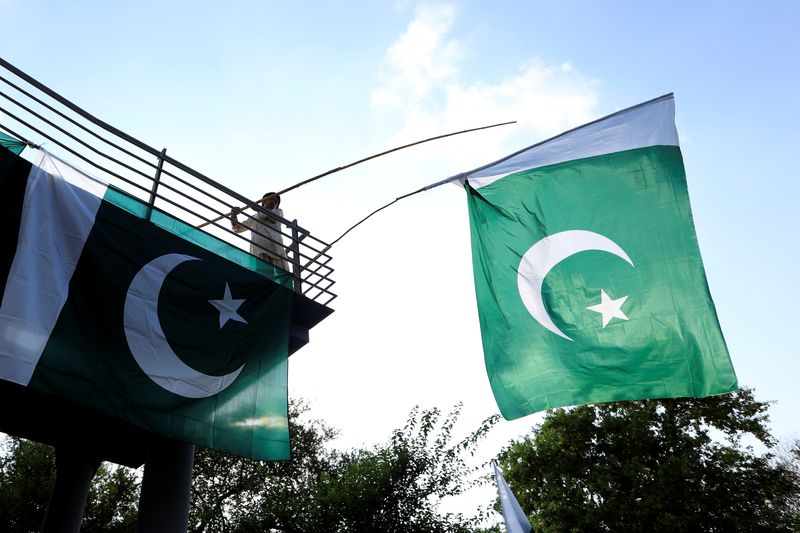By Andrea Shalal
WASHINGTON (Reuters) - Pakistan is looking for breakthroughs in agriculture and information technology during the first ministerial level meeting of a U.S.-Pakistani trade and investment body in seven years, Pakistan's commerce minister said on Tuesday.
Commerce Minister Syed Naveed Qamar will meet on Thursday with U.S. Trade Representative Katherine Tai and other senior U.S. officials under the U.S.-Pakistan Trade and Investment Framework Agreement (TIFA).
Qamar told Reuters the meeting would strengthen ties between the two countries that had been strained in recent years by political tensions, and could help boost bilateral trade in goods and services, which the Pakistani embassy said now totalled about $12 billion.
"It is important that we start talking," he said. "These were supposed to be annual meetings, but for one reason or another, they have been on the backburner for so long. Now that we are starting, there are many areas where we expect some breakthroughs, and that is on both sides."
No comment was immediately available from Tai's office, which included the meeting in its public calendar.
Ties between Islamabad and Washington, once close allies, have just started to warm after some years of frosty relations, mostly due to concerns about Pakistan's alleged support of the Taliban in Afghanistan. Pakistan denies this support.
Qamar said Pakistan was looking to increase its exports of mangoes to the United States, and ensure smooth, increased trade in information technology and computer programming services. The U.S. side was looking to boost exports of beef and soybeans.
"When we talk about trade, we're talking about the entire spectrum, but we're focusing on these things because that's where things would start happening right away," he said.
Pakistan also hoped to attract more U.S. investment, with a particular focus on IT and pharmaceuticals, after a long lull during which China became the dominant investor, he said.

"What we don't want is for one country to have an open field. We want that this should be an open competitive environment," he said.
Pakistan was well-placed to help diversify U.S. supply chains that were dependent on China before COVID-19, but have started to shift toward other regional suppliers. It could serve as a gateway to Central Asia, Qamar said.